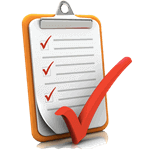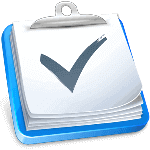 A literature review stands as a formidable pillar of any research paper. It is the bedrock upon which scholarly endeavors are constructed, providing the essential framework that supports the edifice of knowledge. However, preparing a comprehensive and insightful review can prove to be tasking, requiring not only a deep understanding of the subject matter but also the ability to synthesize a vast array of scholarly works into a coherent narrative. This is where the need for professional literature review writing assistance arises, and this is where we step in. We are a dedicated team of experts who understand the intricacies of the research process. We recognize that a well-crafted literature review is not just a compilation of sources, but a meticulous examination of existing scholarship, a critical analysis of methodologies, and a synthesis of diverse ideas and viewpoints. Our mission is simple yet profound: to assist you in your academic journey by offering reliable research assignment chapter two writing services. What sets us apart is our commitment to delivering quality-rich content. We believe that the chapter should not only meet the rigorous standards of academia but also contribute valuable insights to your research. Our team of experienced writers possesses the expertise to navigate the vast landscape of academic literature, distilling key findings and trends to create a literature review that is both informative and insightful. We strive to alleviate the burden of writing, allowing you to focus on the core aspects of your research. With our support, you can be confident that your literature review will be a testament to the depth of your scholarship and the quality of your research.
A literature review stands as a formidable pillar of any research paper. It is the bedrock upon which scholarly endeavors are constructed, providing the essential framework that supports the edifice of knowledge. However, preparing a comprehensive and insightful review can prove to be tasking, requiring not only a deep understanding of the subject matter but also the ability to synthesize a vast array of scholarly works into a coherent narrative. This is where the need for professional literature review writing assistance arises, and this is where we step in. We are a dedicated team of experts who understand the intricacies of the research process. We recognize that a well-crafted literature review is not just a compilation of sources, but a meticulous examination of existing scholarship, a critical analysis of methodologies, and a synthesis of diverse ideas and viewpoints. Our mission is simple yet profound: to assist you in your academic journey by offering reliable research assignment chapter two writing services. What sets us apart is our commitment to delivering quality-rich content. We believe that the chapter should not only meet the rigorous standards of academia but also contribute valuable insights to your research. Our team of experienced writers possesses the expertise to navigate the vast landscape of academic literature, distilling key findings and trends to create a literature review that is both informative and insightful. We strive to alleviate the burden of writing, allowing you to focus on the core aspects of your research. With our support, you can be confident that your literature review will be a testament to the depth of your scholarship and the quality of your research.
How to balance quantity and quality in a lit review in terms of sources
Balancing quantity and quality is crucial to ensure that your research is comprehensive, focused, and rigorous. To achieve this delicate equilibrium, you must ensure the following:
- Clear Objectives: Start by defining the specific research questions or objectives of your literature review. This will guide your selection of sources and help you strike the right balance.
- Comprehensive Search: Begin with a broad search to identify a wide range of sources related to your topic. Use academic databases, libraries, and search engines to cast a wide net.
- Inclusion and Exclusion Criteria: Develop clear criteria for including and excluding sources. Prioritize peer-reviewed journals, reputable books, and authoritative reports. Exclude outdated or irrelevant materials.
- Thematic Clustering: Organize your sources thematically to ensure that your review covers different aspects of the topic. This helps balance the quantity by avoiding over-reliance on a single subtopic.
- Critical Evaluation: Assess the quality of each source. Consider factors like methodology, sample size, and credibility of the author. Prioritize studies with robust research designs.
- Synthesis and Analysis: Analyze and synthesize the information from selected sources, highlighting key findings, trends, and gaps in the literature. This adds value beyond mere quantity.
- Citation Hierarchy: Give more weight to seminal studies and recent publications, as they often carry more significance and relevance.
- Iterative Process: Continuously refine your review as you progress, adding or removing sources as needed to maintain the balance between quantity and quality.
- Transparency: Be transparent in your methodology and criteria when reporting on the sources you've selected. This helps readers understand your rationale.
The role of our writers in crafting a quality literature review
Our writers play a crucial role in crafting quality work. This 2nd section serves as the foundation for the study, providing context, synthesizing existing knowledge, and guiding readers toward the research's significance. By professionally responding to your request “do my research paper literature review,” here is how our writers can contribute to its quality:
- Expert Research Skills: Our writers possess strong research skills to identify and select relevant sources. They can navigate databases, libraries, and academic journals to find the most pertinent literature.
- Critical Analysis Ability: They critically evaluate each source, assessing its methodology, credibility, and relevance to the research topic. This requires the ability to discern the strengths and weaknesses of existing studies.
- Synthesis of Information: A quality literature review involves synthesizing information from various sources to highlight key themes, trends, and gaps in the existing literature. We connect and integrate these findings effectively.
- Clarity and Structure Assurance: Our writers present their findings in a clear and organized manner. The literature review follows a logical structure, making it easy for readers to follow the argument and understand the significance of the research.
- Proper Citations and References Guarantee: Proper citation of sources is essential. Our experts adhere to citation styles (e.g., APA, MLA) and maintain consistency throughout the review.
- High Critical Thinking: We do not merely summarize sources but also engage in critical thinking. We analyze and interpret the literature, offering insights and potential avenues for future research.
- Originality Maintenance: While a literature review is a summary of existing work, our writers add value by bringing their perspective, identifying novel connections, or proposing fresh ideas.
 When it comes to the critical task of writing a lit review for a project, the importance of quality-rich content cannot be ignored. The literature review serves as the backbone of your research, providing the necessary context, framing, and foundation upon which your study is built. It not only demonstrates your understanding of existing research but also highlights the gaps that your own work aims to fill. A well-executed literature review is not merely a summary of previous studies; it is a thoughtful synthesis of ideas, a critical analysis of methodologies and findings, and a demonstration of the evolution of thought in your field. It requires meticulous research, careful selection of relevant sources, and a clear, logical organization of ideas. By entrusting your work to us, you are ensuring that your paper stands on solid ground. Quality-rich content not only enhances the credibility of your work but also makes it more accessible and valuable to your readers. In the ever-evolving landscape of academia, the significance of a well-crafted review cannot be underestimated. It not only paves the way for your research but also contributes to the broader scholarly conversation. Therefore, when you seek our help, remember that investing in quality-rich content is an investment in the success and impact of your research.
When it comes to the critical task of writing a lit review for a project, the importance of quality-rich content cannot be ignored. The literature review serves as the backbone of your research, providing the necessary context, framing, and foundation upon which your study is built. It not only demonstrates your understanding of existing research but also highlights the gaps that your own work aims to fill. A well-executed literature review is not merely a summary of previous studies; it is a thoughtful synthesis of ideas, a critical analysis of methodologies and findings, and a demonstration of the evolution of thought in your field. It requires meticulous research, careful selection of relevant sources, and a clear, logical organization of ideas. By entrusting your work to us, you are ensuring that your paper stands on solid ground. Quality-rich content not only enhances the credibility of your work but also makes it more accessible and valuable to your readers. In the ever-evolving landscape of academia, the significance of a well-crafted review cannot be underestimated. It not only paves the way for your research but also contributes to the broader scholarly conversation. Therefore, when you seek our help, remember that investing in quality-rich content is an investment in the success and impact of your research.
Best Tips & Tricks for Writing Chapter 2 of a Research Paper
 The 2nd section of a research paper is often the pivotal point where the groundwork laid in the introduction begins to take shape and substance. It is the chapter where the review of related literature, theoretical framework, and methodology converge to set the stage for the empirical exploration that follows. Writing this chapter effectively is crucial for the overall success of your paper, as it not only provides context and credibility to your study but also serves as a bridge between your research question and the methods you employ to answer it. Navigating the intricate landscape of Chapter 2 can be a daunting task, but fear not, as we are here to guide you on the best way to write a lit review for an academic paper. In this critical chapter, you will delve into existing research, identify gaps in the literature, and establish the theoretical foundation upon which your research is built. You will also detail the research design, data collection, and analysis methods you will employ, ensuring that your readers are well-equipped to understand and evaluate your study. We will offer strategies for conducting a thorough review, and provide insights into crafting a robust theoretical framework. Additionally, we will delve into the intricacies of research methodology, helping you make informed decisions about data collection and analysis. By the end of this journey, you will be armed with the knowledge and tools necessary to craft a compelling and well-structured chapter that lays a solid foundation for the rest of your research paper. So, let's embark on this writing expedition and ensure work shines brightly in your research paper. We offer expert help with writing chapter II of a research assignment.
The 2nd section of a research paper is often the pivotal point where the groundwork laid in the introduction begins to take shape and substance. It is the chapter where the review of related literature, theoretical framework, and methodology converge to set the stage for the empirical exploration that follows. Writing this chapter effectively is crucial for the overall success of your paper, as it not only provides context and credibility to your study but also serves as a bridge between your research question and the methods you employ to answer it. Navigating the intricate landscape of Chapter 2 can be a daunting task, but fear not, as we are here to guide you on the best way to write a lit review for an academic paper. In this critical chapter, you will delve into existing research, identify gaps in the literature, and establish the theoretical foundation upon which your research is built. You will also detail the research design, data collection, and analysis methods you will employ, ensuring that your readers are well-equipped to understand and evaluate your study. We will offer strategies for conducting a thorough review, and provide insights into crafting a robust theoretical framework. Additionally, we will delve into the intricacies of research methodology, helping you make informed decisions about data collection and analysis. By the end of this journey, you will be armed with the knowledge and tools necessary to craft a compelling and well-structured chapter that lays a solid foundation for the rest of your research paper. So, let's embark on this writing expedition and ensure work shines brightly in your research paper. We offer expert help with writing chapter II of a research assignment.
Go beyond the basics with our advanced chapter two writing techniques
Our experts can elevate your work by employing advanced techniques that go beyond the basics. They can help by ensuring:
- Comprehensive Literature Search: Our experts are skilled in conducting in-depth literature searches using various academic databases, ensuring that your review encompasses the latest and most relevant studies in your field.
- Thematic Analysis: They can perform a thematic analysis of the literature, identifying key themes, trends, and gaps in existing research. This goes beyond simply summarizing studies and provides a deeper understanding of the topic.
- Synthesis of Findings: Our experts excel at synthesizing information from diverse sources. They can connect the dots between studies, showing how different pieces of research relate to one another and contribute to the overall understanding of the topic.
- Critical Evaluation: They will critically evaluate the quality of the studies included in your review, assessing factors like methodology, sample size, and validity. This ensures that only high-quality research informs your paper.
- Conceptual Framework Development: Our experts can help you develop a robust conceptual framework that guides your literature review. This framework will help you structure your arguments and frame your research questions effectively.
- Citation and Referencing: They are meticulous when it comes to proper citation and referencing, ensuring that your literature review adheres to the specific citation style required by your institution or journal.
- Clear and Engaging Writing: They have the expertise to transform complex academic content into clear, engaging prose. This ensures that your literature review is not only informative but also a pleasure to read.
How to create a compelling literature review for your research paper
A persuasive chapter II is a critical component of any academic paper, providing a solid foundation for your study and showcasing your understanding of existing scholarship. These are the best tips & tricks for writing chapter 2 of a research paper;
- Define the Scope: Begin by defining the scope of your literature review. Clearly state the research question or topic you're addressing and the specific criteria for selecting relevant sources.
- Do Comprehensive Search: Thoroughly search academic databases, journals, books, and other reputable sources. Include recent and seminal works to demonstrate the evolution of thought in your field.
- Organize and Review: Categorize the sources based on common themes, theories, or methodologies. Summarize key findings and insights from each source while highlighting any gaps or controversies in the literature.
- Evaluate and Synthesize: Analyze the data critically, identifying trends, patterns, and connections among sources. Synthesize the information to build a coherent narrative, demonstrating your grasp of the subject matter.
- Provide Context: Situate your research within the broader academic discourse. Explain the relevance of each source to your study and how it contributes to your research objectives.
- Maintain a Logical Flow: Ensure a logical flow by structuring your review chronologically, thematically, or methodologically, depending on what best suits your research.
- Engage in Critical Discussion: Offer critical insights into the strengths and weaknesses of the existing literature. Discuss conflicting viewpoints and unresolved issues, paving the way for your research to address these gaps.
- Revise and Refine: Review and refine your 2nd section to enhance clarity and coherence, ensuring it aligns seamlessly with your research paper's overall objectives.
 A lit review, serves as the backbone of your research, providing the context, theoretical framework, and foundation upon which your study stands. You must start by conducting extensive research to identify key studies, theories, and concepts relevant to your topic. A comprehensive literature review is built on a strong foundation of knowledge. Also, maintain a clear and logical structure in your literature review. Group related studies by themes or methodologies, and use subheadings to guide your readers through the review. Don't just summarize studies; critically evaluate them. Highlight gaps, contradictions, and areas where your research can contribute something new. More so, synthesize the information from various sources to create a coherent narrative. Show how previous research leads to your research questions and hypotheses. Ensure accurate and consistent citation of all sources following the appropriate citation style (APA, MLA, Chicago, etc.). Relevantly, meticulously edit and proofread your work. Typos and grammatical errors can detract from the credibility of your work. Remember that a well-crafted chapter two of a research project enhances the overall quality and validity of your research paper, demonstrating your expertise in the field and setting the stage for empirical work in subsequent chapters. By following these tricks, you can produce a literature review that not only impresses your readers but also advances the scholarly conversation within your area of study.
A lit review, serves as the backbone of your research, providing the context, theoretical framework, and foundation upon which your study stands. You must start by conducting extensive research to identify key studies, theories, and concepts relevant to your topic. A comprehensive literature review is built on a strong foundation of knowledge. Also, maintain a clear and logical structure in your literature review. Group related studies by themes or methodologies, and use subheadings to guide your readers through the review. Don't just summarize studies; critically evaluate them. Highlight gaps, contradictions, and areas where your research can contribute something new. More so, synthesize the information from various sources to create a coherent narrative. Show how previous research leads to your research questions and hypotheses. Ensure accurate and consistent citation of all sources following the appropriate citation style (APA, MLA, Chicago, etc.). Relevantly, meticulously edit and proofread your work. Typos and grammatical errors can detract from the credibility of your work. Remember that a well-crafted chapter two of a research project enhances the overall quality and validity of your research paper, demonstrating your expertise in the field and setting the stage for empirical work in subsequent chapters. By following these tricks, you can produce a literature review that not only impresses your readers but also advances the scholarly conversation within your area of study.








 The construction of a
The construction of a  The process of writing an academic paper is a crucial and challenging endeavor. This essential component of scholarly research serves as the foundation upon which the rest of the study is built. We have shed light on the fundamental elements of a successful literature review, emphasizing the importance of a clear research question, a systematic search for relevant sources, critical analysis, and effective synthesis. We have also highlighted the benefits of seeking help from our experienced writers who can provide invaluable support in the form of insights, techniques, and examples. Furthermore, it is evident that access to our reliable writing guidance can significantly enhance one's ability to construct chapter two that is not only academically sound but also intellectually engaging. By following the principles outlined and utilizing the expertise of our professional writers, students and researchers can elevate the quality of their academic work, contribute meaningfully to their respective fields, and ultimately, advance knowledge and understanding. In a world where information is abundant, mastering the art of creating a lit review is essential for anyone committed to academic excellence and scholarly achievement. With the right tools and support, the journey toward becoming a proficient and impactful writer in the academic realm becomes not only manageable but also immensely rewarding.
The process of writing an academic paper is a crucial and challenging endeavor. This essential component of scholarly research serves as the foundation upon which the rest of the study is built. We have shed light on the fundamental elements of a successful literature review, emphasizing the importance of a clear research question, a systematic search for relevant sources, critical analysis, and effective synthesis. We have also highlighted the benefits of seeking help from our experienced writers who can provide invaluable support in the form of insights, techniques, and examples. Furthermore, it is evident that access to our reliable writing guidance can significantly enhance one's ability to construct chapter two that is not only academically sound but also intellectually engaging. By following the principles outlined and utilizing the expertise of our professional writers, students and researchers can elevate the quality of their academic work, contribute meaningfully to their respective fields, and ultimately, advance knowledge and understanding. In a world where information is abundant, mastering the art of creating a lit review is essential for anyone committed to academic excellence and scholarly achievement. With the right tools and support, the journey toward becoming a proficient and impactful writer in the academic realm becomes not only manageable but also immensely rewarding. Does your work Require Rewriting Help?
Does your work Require Rewriting Help?